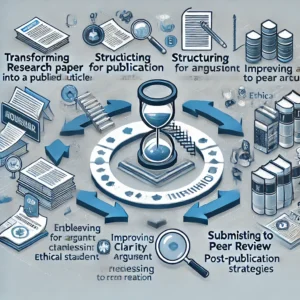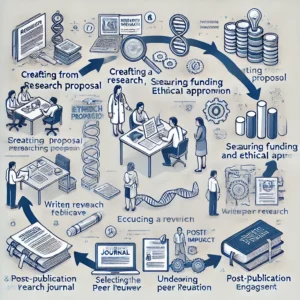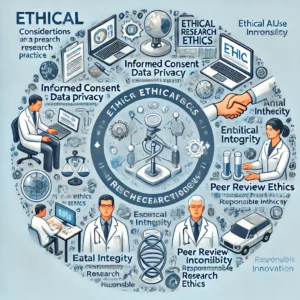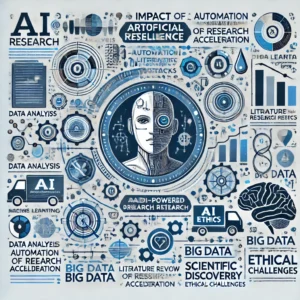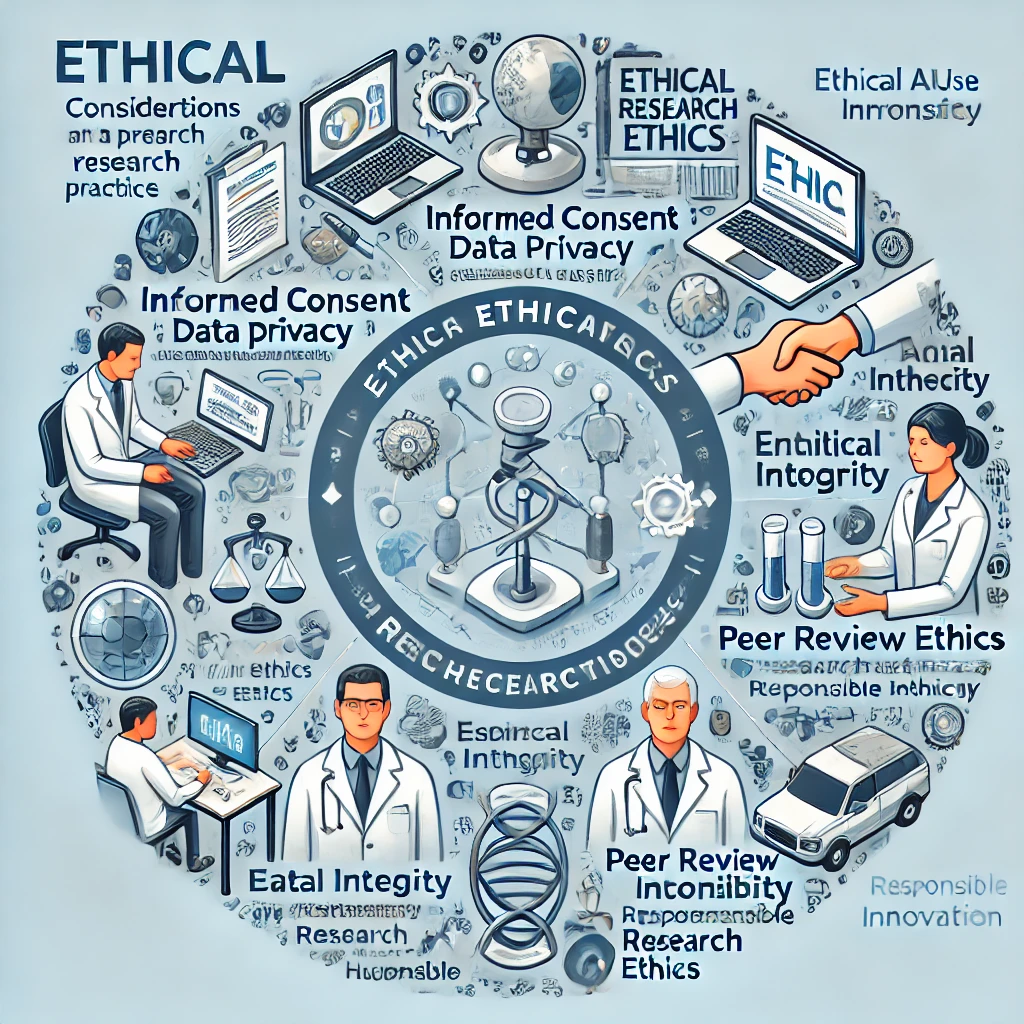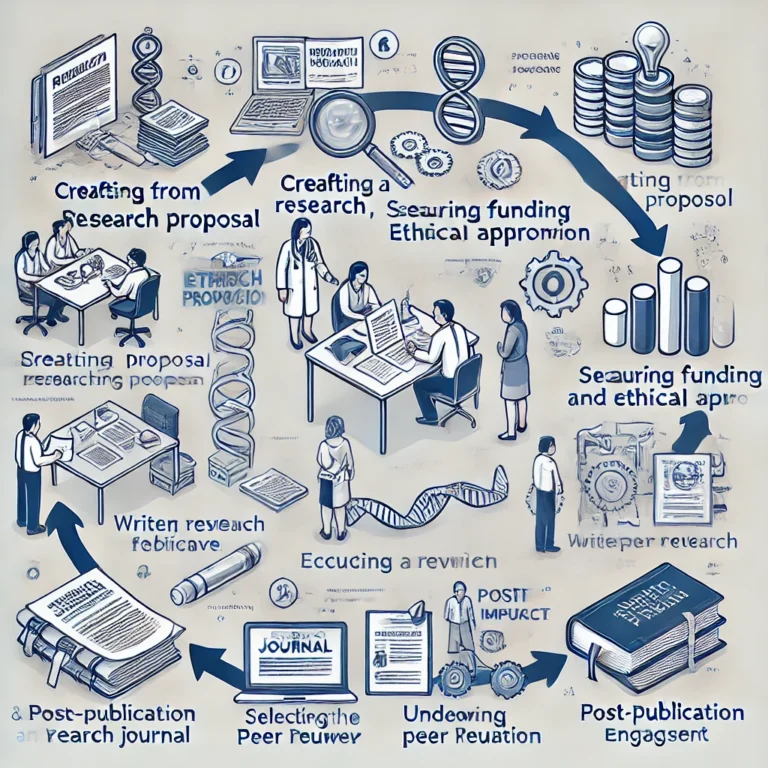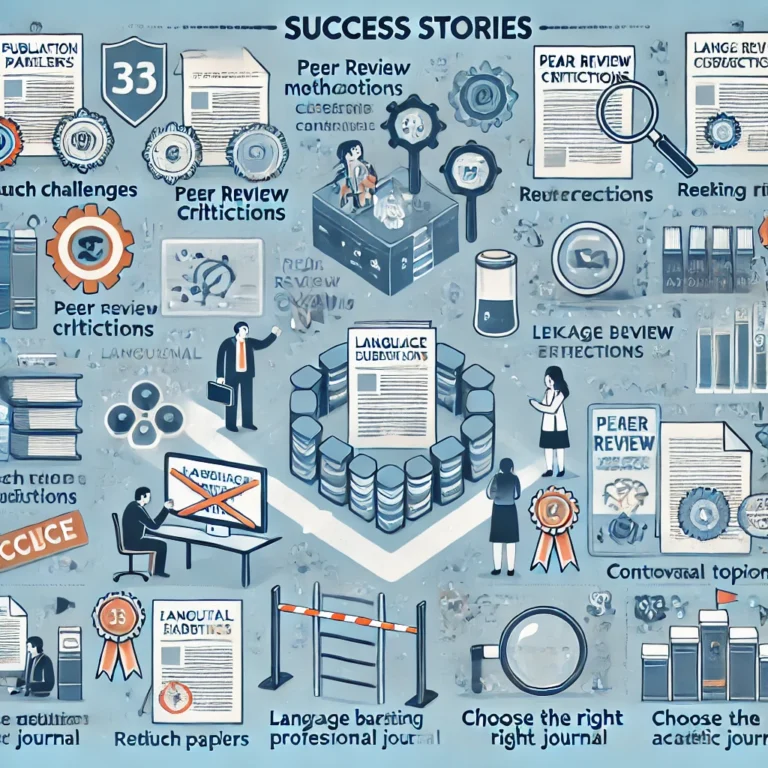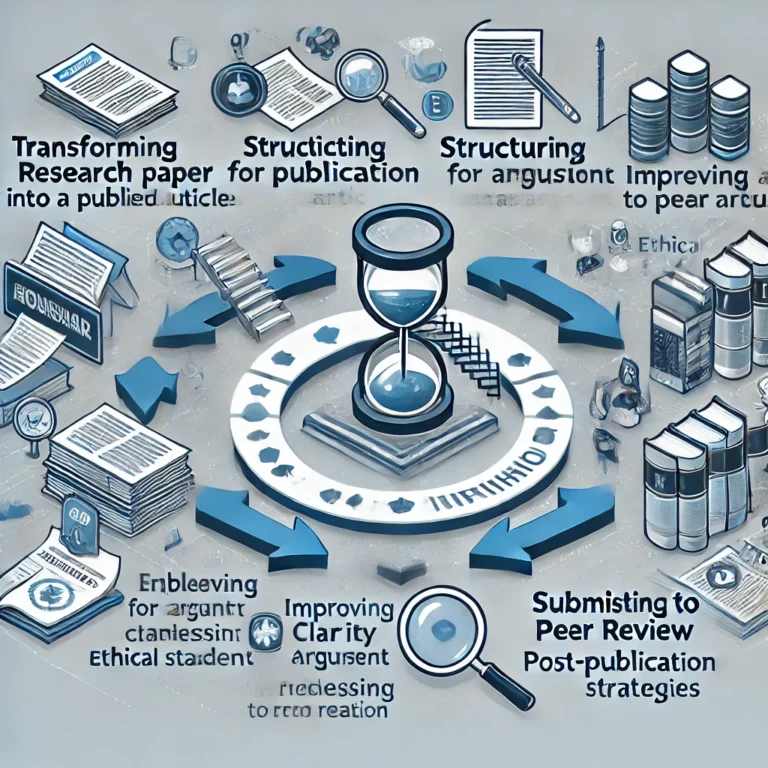Ethics in research is essential to ensure integrity, transparency, and the protection of human and environmental welfare. As technology advances and interdisciplinary research expands, researchers must navigate complex ethical dilemmas. Below are key ethical considerations in modern research practices.
1. Informed Consent and Participant Rights
Researchers must obtain informed consent from participants, ensuring they fully understand the study’s purpose, risks, and their right to withdraw at any time.
Key Principles:
✅ Voluntary Participation – No coercion or undue influence.
✅ Full Disclosure – Participants must be informed of potential risks.
✅ Confidentiality – Personal data must be protected.
🔹 Example: Medical trials require signed consent forms detailing risks and benefits.
2. Data Privacy and Security
With the rise of big data and AI, protecting sensitive information is more crucial than ever.
Ethical Guidelines:
✅ Anonymization – Remove personally identifiable information.
✅ Encryption – Secure data against breaches.
✅ Regulatory Compliance – Follow GDPR, HIPAA, and other privacy laws.
🔹 Example: Social media research must ensure user data is not exploited or misused.
3. Avoiding Research Misconduct
Integrity in research ensures credibility and trust in scientific findings.
Forms of Misconduct:
⚠ Plagiarism – Using others’ work without credit.
⚠ Fabrication – Making up data or results.
⚠ Falsification – Manipulating research findings.
🔹 Example: High-profile retractions in medical journals highlight the need for transparency in publishing.
4. Ethical Use of AI and Machine Learning
AI-powered research raises concerns about bias, fairness, and accountability.
Ethical AI Principles:
✅ Bias Mitigation – Ensure diverse and representative datasets.
✅ Explainability – AI models should be interpretable.
✅ Accountability – Researchers must take responsibility for AI-generated outcomes.
🔹 Example: Facial recognition in research must address bias and ethical concerns.
5. Environmental and Social Responsibility
Researchers must consider the broader impact of their work on society and the environment.
Key Considerations:
✅ Sustainability – Minimize environmental harm in experiments.
✅ Dual-Use Research – Prevent misuse of findings for harmful purposes (e.g., bioweapons).
✅ Community Engagement – Involve stakeholders in research affecting their communities.
🔹 Example: Genetic engineering research must balance scientific progress with ethical risks.
6. Ethical Peer Review and Publication Practices
Transparency in publishing ensures fairness and credibility.
Best Practices:
✅ Conflict of Interest Disclosure – Reviewers must declare biases.
✅ Fair Peer Review – Avoid discriminatory or biased rejections.
✅ Open Access and Ethical Publishing – Support fair access to research findings.
🔹 Example: Predatory journals exploit researchers by charging fees without proper peer review.
7. Ethical Considerations in Human and Animal Research
Research involving humans and animals must follow strict ethical guidelines.
Human Research Ethics:
✅ Institutional Review Boards (IRBs) oversee human studies.
✅ Ethical treatment of vulnerable populations.
Animal Research Ethics:
✅ Follow the 3Rs Principle – Reduce, Refine, Replace.
✅ Minimize animal suffering in experiments.
🔹 Example: Biomedical research must justify animal use and seek alternatives where possible.
Conclusion
Ethical considerations in research are fundamental to credibility, public trust, and social responsibility. As technology advances, researchers must continuously adapt ethical standards to ensure fairness, transparency, and sustainability.
Would you like a visual representation of these ethical principles or guidance on ethical approval processes? 😊

